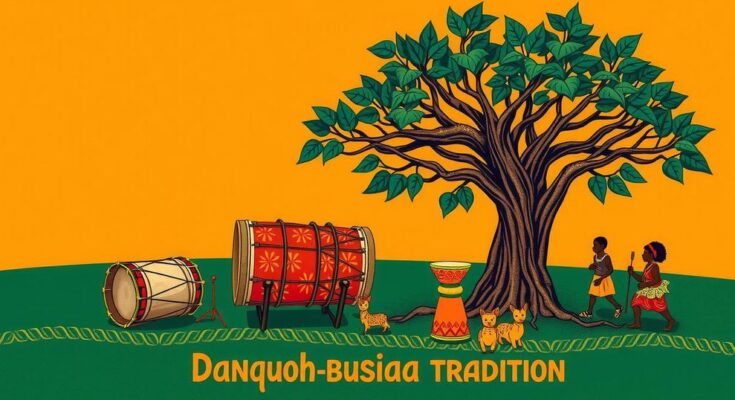Renowned historian Yaw Anokye Frimpong claims that the Danquah-Busia Tradition is a fictitious concept created by a faction within the New Patriotic Party to challenge Ashanti dominance in Ghana’s politics. He argues that significant historical figures and movements in Ghana do not support this tradition’s legitimacy and highlight the political dynamics during the era of independence.
Prominent historian and legal expert Yaw Anokye Frimpong has articulated that the concept of the Danquah-Busia Tradition does not exist in the political history of Ghana. He argues that this notion is a fabrication by a faction within the New Patriotic Party (NPP) intending to counter Ashanti political influence.
In a recent interview on Onua TV, Anokye Frimpong proposed that the Akyem faction of the NPP, which did not participate in the United Party (UP) or the National Liberation Movement (NLM), invented the Danquah-Busia Tradition to enhance their political relevance. He pointed out historical inconsistencies regarding the emergence of leadership during the secessionist movements post-1951 election.
Frimpong stated, “There is nothing in Ghana called the Danquah-Busia Tradition; it is a lie. It was the supporters of J.B. Danquah, led by Adu-Boahen, who tricked the Ashantis.” He further emphasized that J.B. Danquah, a key figure in the United Gold Coast Convention (UGCC), was never involved with the NLM or UP, which challenges the legitimacy of the tradition.
He mentioned, “If the Ashantis are able to organize themselves properly, they will be the ones determining who becomes the president of the country all the time.” Frimpong critiqued the Akyem Abuakwa royal house’s promotion of the Danquah-Busia idea as a deceptive construct. He questioned why, during the formation of the NLM and UP, the Ashantis chose Kofi Busia over Danquah, highlighting that Danquah did not resonate with Ashanti supporters.
Frimpong explained that the UGCC sought independence for coastal areas and did not include populations outside these regions, which is why figures like Danquah were marginalized in favor of leaders who could effectively oppose Kwame Nkrumah. He concluded that if Danquah were truly a pivotal figure, he would not have been overlooked when the Ashantis established their parties.
Historian Yaw Anokye Frimpong rigorously critiques the validity of the Danquah-Busia Tradition, asserting it is a constructed narrative by a faction within the NPP. His insights challenge the historical account of Ghana’s political dynamics, particularly regarding leadership and regional affiliations during critical periods. Frimpong’s analysis underscores the complexity of Ghana’s political legacy, raising questions about identity and representation in its historical context.
Original Source: www.ghanaweb.com




